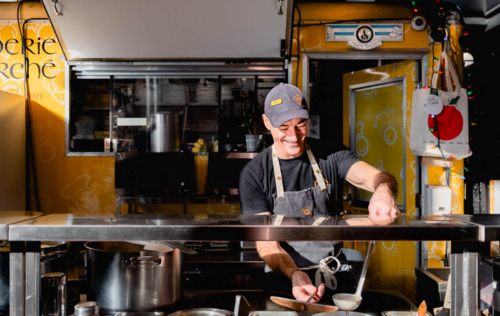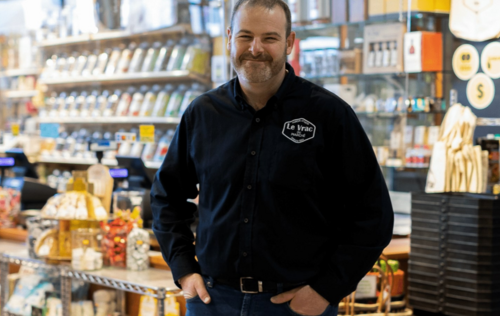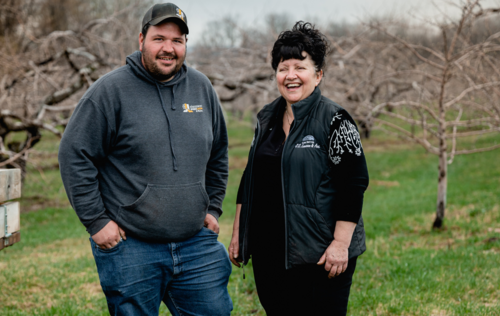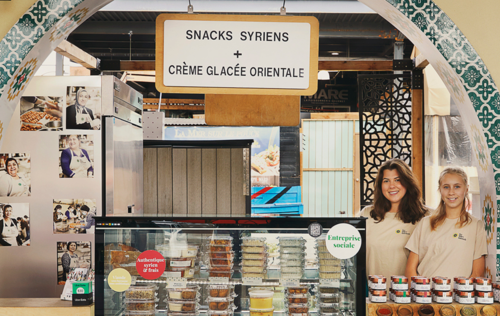Charcuterie Balkani: Local Products with a Taste of Romania
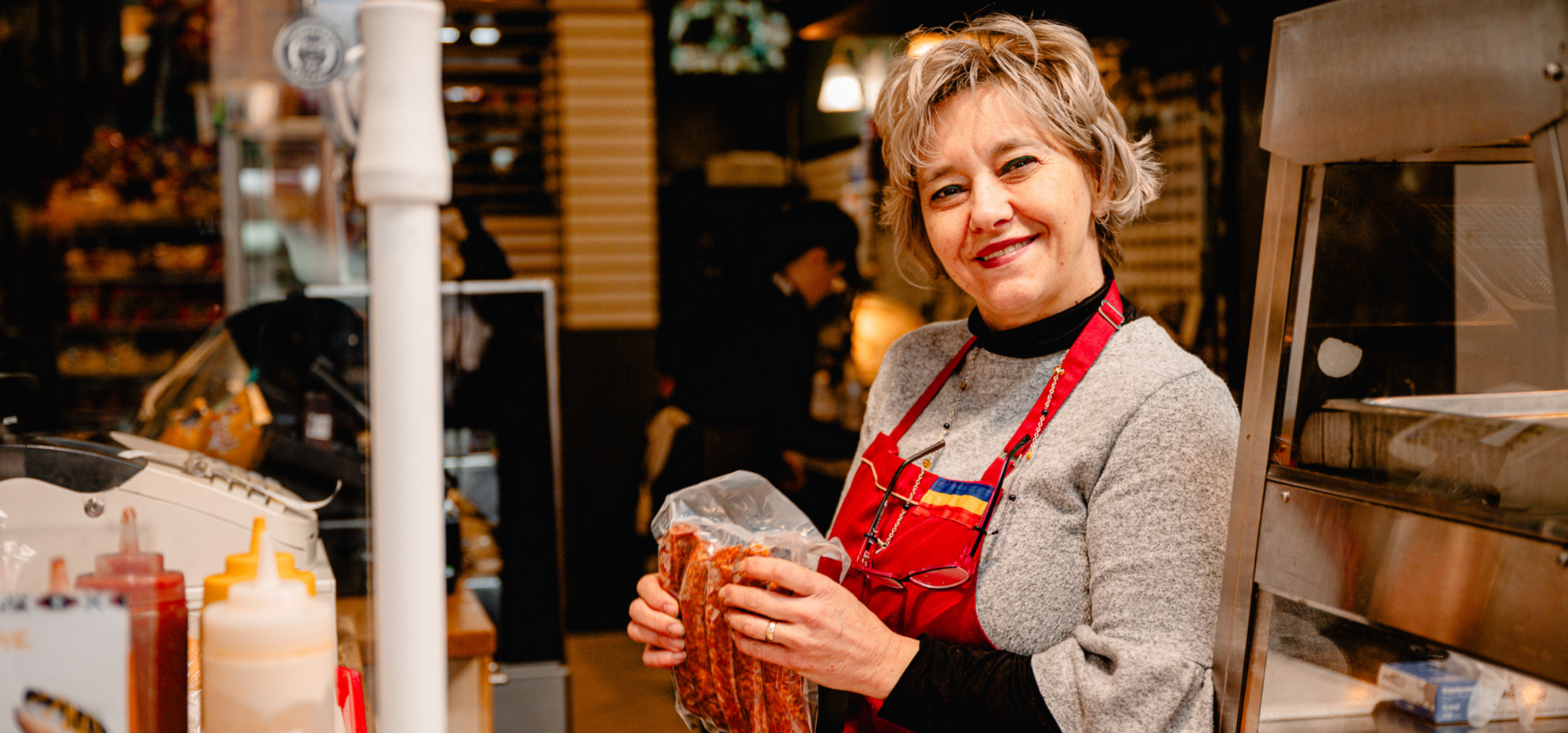
At the heart of Jean-Talon Market sits Charcuterie Balkani in a small, warm and lively space. Known for its European specialties, including the famous Romanian mici, the shop will be celebrating its 20th anniversary in 2024. And it’s right here, in this very kiosk, that it all began. Owner Daniel Joseph still remembers the adrenalin and euphoria filled early days.
“There was just the two of us and we were making everything right here,” he recalls. “We had a cold room at the back, a small smoker and a meat grinder. We’d sell our products and have tastings during the day, and make our sausages in the evening, sometimes till 11p.m.! The next day we’d start all over again. We were here 7 days a week. It was crazy!”
The project sprang while Daniel was studying at HEC Montréal. He was also working as a delivery man at a pizzeria, that’s where he met his future business partner who dreamed of opening an artisanal charcuterie. A regular at Jean-Talon Market, he noticed that new spaces were available. The partners seized the opportunity: they did a market study and presented their project to management.
“We waited for a response. There were lots of applications and we’d given up hope. Fact is that I had moved house and the letter of acceptance had gotten lost in the mail!”
So, Charcuterie Balkani came close to never existing, yet the partners finally got their hands on a small space that suited their modest budget. A neighbourly shopkeeper sold them used shop windows at a discount, and the young charcuterie butchers got to work.
Unique Quality Products
Success soon came knocking on the door, so much so that production had to be moved to larger premises and a few employees hired. Although the charcuterie butchers had initially targeted a European clientele with a range of niche products, people from all over flocked in to enjoy their flavourful fare.
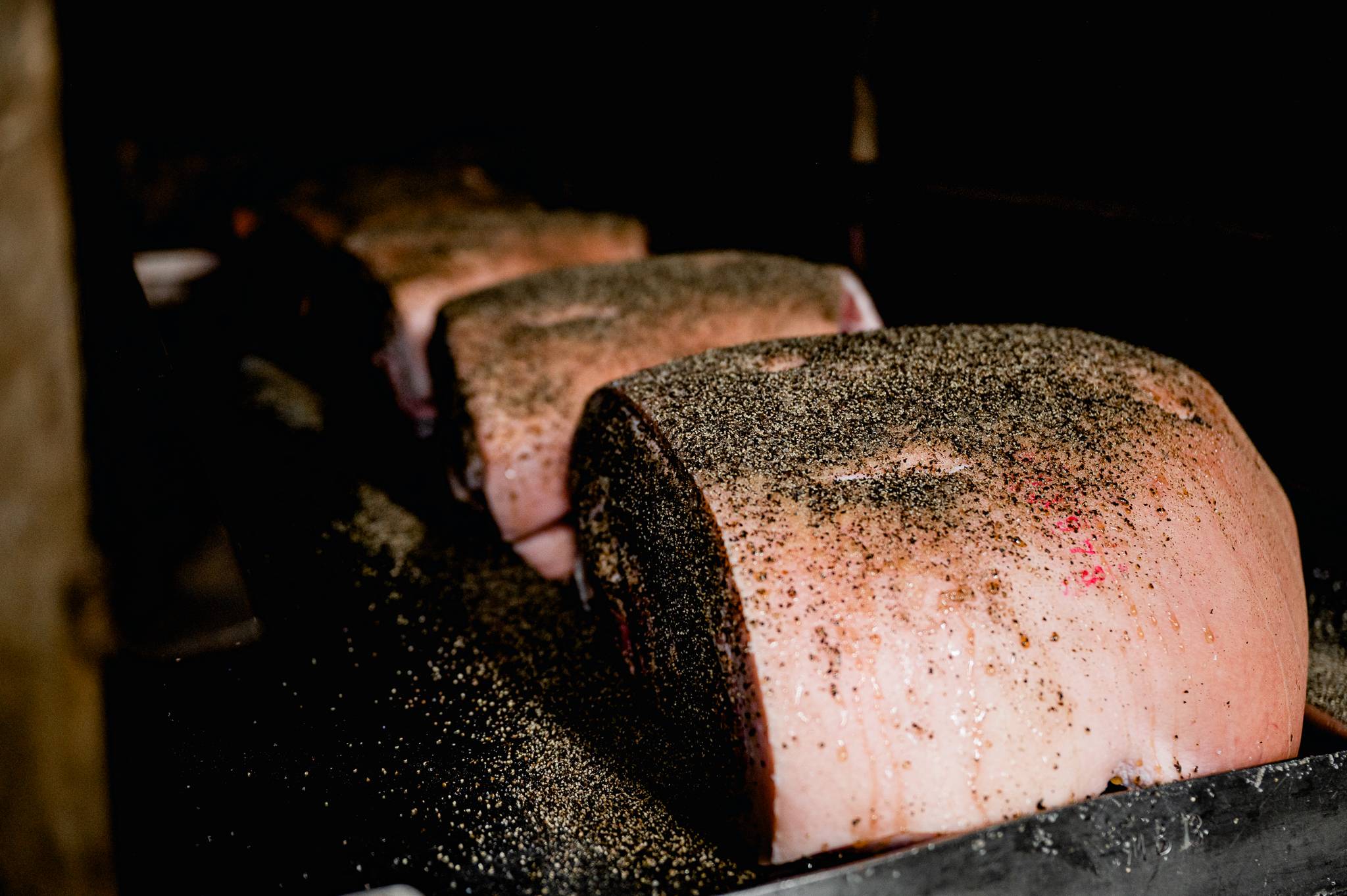
The duo opened a second outlet, in Laval, where they also moved production. Then, in 2011, the partners went their separate ways. Daniel kept the Jean-Talon Market shop for which he had a genuine commitment.
“My parents have always been in business and I grew up working with them serving customers. I was born in Romania and grew up in France. I spent my childhood in public markets. That close relationship between producer and customers is important to me.”
That same year, Daniel purchased an outlet with a wholesaler licence on the South Shore.
“This opened up a market to distribute to grocery shops and butchers. So, we were managing the market shop, the Longueuil shop and production. That was really rock and roll!”
Until last year, Daniel’s mother was tending to customers in Montréal, but Romanian partners recently took over operations. The retired grandmother can now spend more time with her grandkids.
Today, Daniel’s wife runs the South Shore shop while he manages production in Mont-Saint-Grégoire where he bought Les Salaisons d’Antan which used to make bacon and ham for nearby sugar shacks. For decades, the company was renowned for its braised pork.
“There was once a shop and a slaughterhouse on the premises. Older people tell me that they used to come here with their families when they were kids. The place has quite a history. That’s what I liked about it.”
A Human Scale Business
Charcuterie Balkani now makes up to 150 products in Mont-Saint-Grégoire.
“We source most of our meat from local farmers. It’s important to me to remain artisanal, to offer quality products with a simple ingredient list: meat, selected spices and natural smoke. We’ve refined our recipes over the years. We continue to improve our charcuterie and develop new products. That’s what keeps me motivated after all these years.”
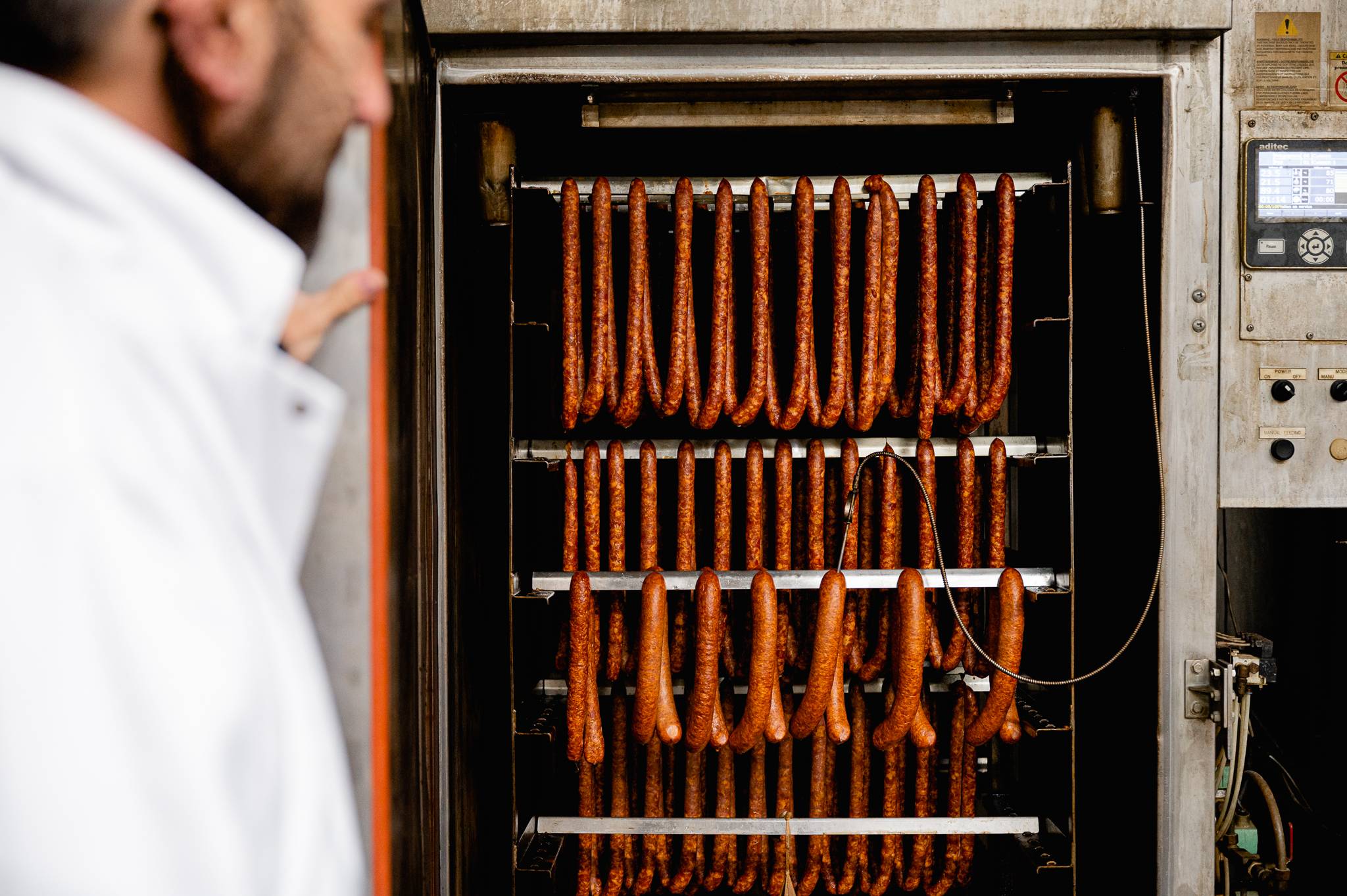
Customers come from as far away as Québec City and Halifax to buy his products. Many make special orders. “We’re a magnet despite our small size. People who taste our charcuterie want to renew the same tasting experience. People visit Balkani for our mici, a Romanian specialty, a beef, lamb and pork sausage with no casing served in a bun. We also have csabai pork sausages, a Hungarian specialty. We sell pork shanks, smoked chops and head cheese. Our products are unique, based on ancestral recipes.”
Even though business is doing well, Daniel Joseph has no desire to expand. He has two young children and is a strong advocate of maintaining a good quality of life. “I’m proud of what we do. We work hard. We have good employees that we want to keep and I prefer to invest in high quality and a healthy environment. I want a human scale business.” In total, 25 employees work for Charcuterie Balkani.
Several delicatessens are shutting down. Keeping his fingers crossed, Daniel hopes that the next generation will be ready to take over.
“The demand is there. We’ve done a great deal of education, people today are curious and open to new flavours. But when you think about it, what could be simpler and tastier than a saucisson, a baguette, some cheese and a glass of wine?”
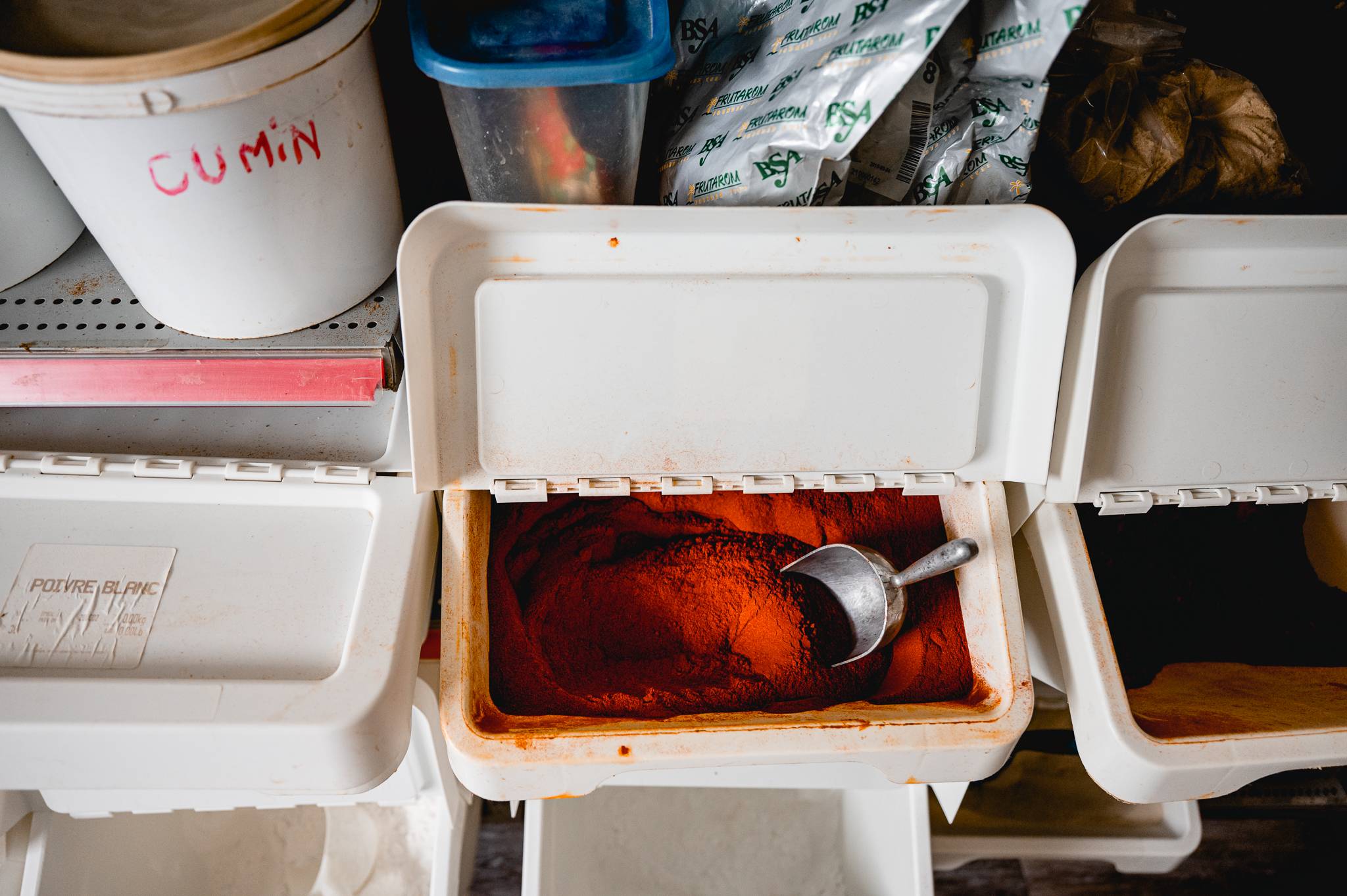
Quick questions
Three words you associate with the market.
Diversity, liveliness, human scale.
A great memory of the market.
The flavours. I’ve loved public markets ever since I was a kid. I love this access to flavours. It’s like travelling and sharing the knowledge you brought with you.
Your favourite food when you were a child.
Mici. In Romania, you could find them everywhere. In summer, people cooked them on big charcoal grills. They were served at events and festivals, a bit like hot dogs here. It’s the national dish in summer.
Producers, merchants and artisans together make up the Montréal Public Markets’ extended family. For years, often for generations, they’ve been getting up early, experimenting, sometimes starting over, nurturing, harvesting and flourishing! Day after day, they stand proudly behind their stalls as if by their own dining-room table, inviting us to feast. They’re the heart and soul of the markets – their very essence – and the reason we keep coming back. The Family Portrait series aims to pay tribute to all the pillars of our public markets.
This project is funded through the Programme Proximité of the ministère de l’Agriculture, des Pêcheries et de l’Alimentation, a program implemented under the Canadian Agricultural Partnership according to an agreement between the governments of Canada and Québec.

